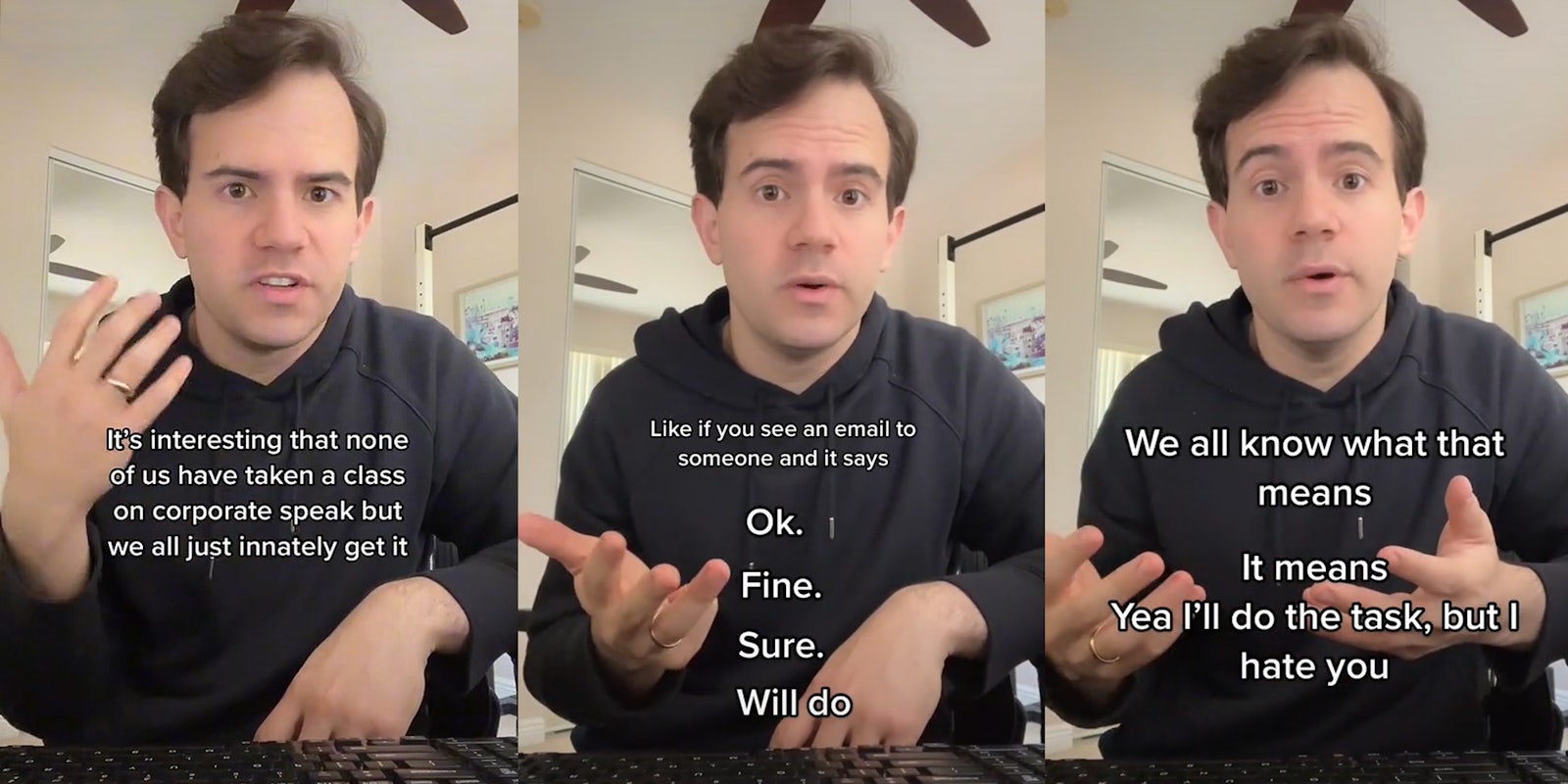A TikToker has sparked discourse on “corporate-speak” after citing several examples of how workers use formal punctuation to get away with being passive-aggressive in company communications.
In the video posted by TikToker Matt (@itsmattslaw) on Wednesday, he remarks that “it’s interesting that none of us have taken a class on corporate-speak but we all just innately get it.”
In the clip, Matt claims short phrases “with a period” especially signal passive-aggressiveness.
“Like if you see an email to someone and it says ‘Okay.’ Period. ‘Fine.’ Period. ‘Sure.’ Period. Or ‘Will do.’ We all know what that means,” Matt says in the clip. “It means, ‘Yeah I’ll do the task. But I hate you.’”
@itsmattslaw Will do #law #lawyers #professionals #corporate ♬ original sound – Matt M.
The video has garnered over 535,000 views as of Monday, with commenters discussing how punctuation can change the entire meaning of the example phrases that Matt mentioned.
“Will do. – angry, annoyed, hatred. Will do! – eager to please, happy to help, excited to work with you,” one user wrote.
“If I like you, you receive at least 1 exclamation point,” another said.
In a comment, Matt also suggested viewers add an exclamation point if they were worried about sounding passive-aggressive on accident.
A 2016 study found that “texts that ended with a period were rated as less sincere than those that did not.” This could explain why workers may feel put off by direct, to-the-point messages like the examples in Matt’s video.
According to VICE, passive-aggressive corporate jargon has roots in the mid-late 20th century, when many quickly expanding corporations attempted to sugar-coat mass layoffs and firing workers with phrases like “streamlining” or “restructuring.”
However, some commenters feel as though workers are “reading into it” and don’t believe short responses signal passive-aggressiveness.
“No it doesn’t… normalize short responses! I don’t want to type long-winded answers every time I want to say ‘sure,’” one user wrote.
“Sorry, we do not all know this. When I respond with will do that is literally all I mean. There is no subtext,” another said.
“I did not know this. I thought it said and meant exactly what was written. I’m sure I’ve missed being offended and offended people,” a third added.
The Daily Dot reached out to Matt via email.


